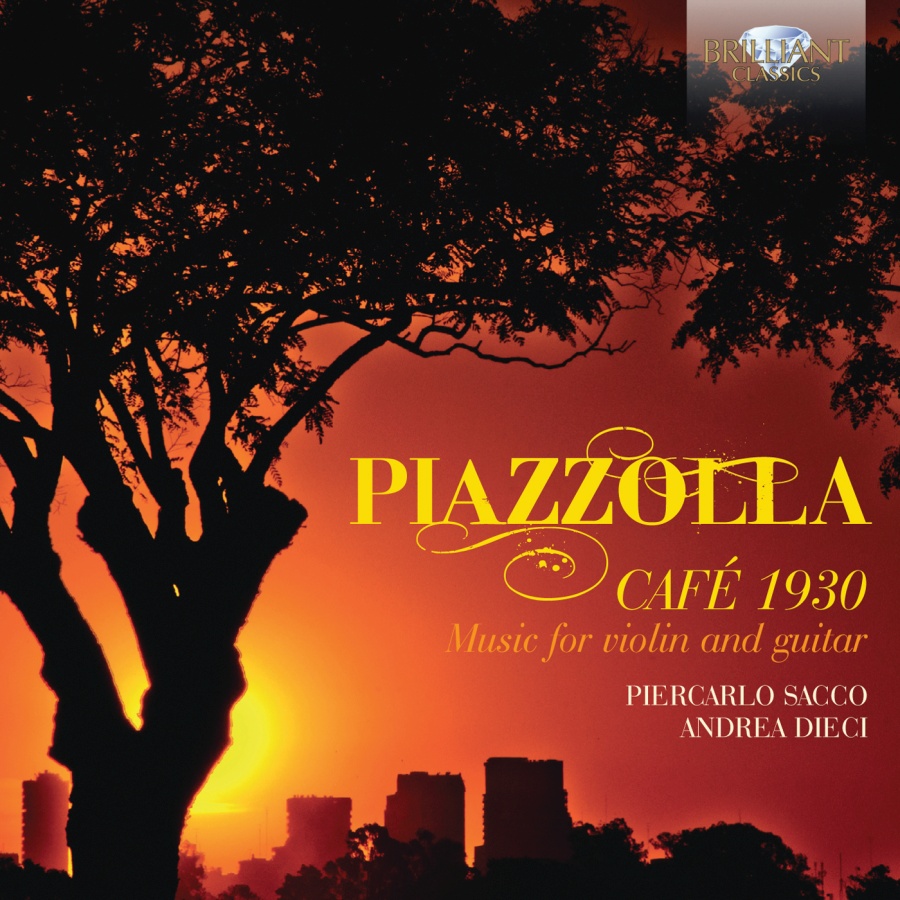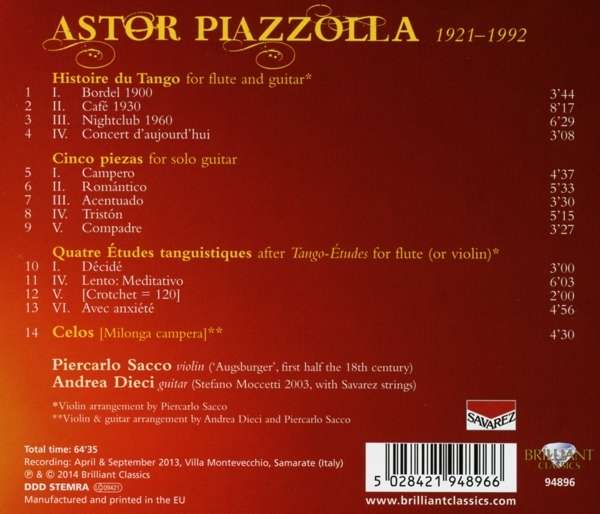
kompozytor
Piazzolla, Astor
tytuł
Piazzolla: Café 1930, Music for Violin and Guitar
wykonawcy
Sacco, Piercarlo;
Dieci, Andrea
Dieci, Andrea
nr katalogowy
94896
opis
It had previously been said that in Argentina ‘everything can change except the Tango’. And then there was Astor Piazzolla, who revolutionised this genre in the mid-20th century. Creating a new genre that would become known as the Nuevo Tango, Piazzolla added influences of jazz and classical music to create his spell-binding music. The Histoire du Tango, the first work to be feature on this compilation, is a tribute to the development of the Tango, including movements such as ‘Bordel 1900’ and ‘Nightclub 1960’. Originally written for flute and guitar, it is performed here in the version for violin by Piercarlo, one of the artists on the recording. The Études tanguistiques show particular virtuosic elements such as the use of percussive articulation, double harmonics and complex double and triple stops. The collection also includes Celos, as well as Piazzolla’s only work for guitar, the Cinco piezas – an insight into folk melodies and rhythms of Argentinian culture, combined with an unmistakeable streak of classicism.
• Piazzólla: Celos
• Piazzólla: Cinco Piezas para Guitarra
• Piazzólla: Étude Tanguistique No. 1 for solo flute
• Piazzólla: Etude Tanguistique No. 4 for solo flute
• Piazzólla: Etude Tanguistique No. 5 for solo flute
• Piazzólla: Etude Tanguistique No. 6 for solo flute
• Piazzólla: Histoire du Tango
• Piazzólla: Histoire du Tango: Bordel 1900
• Piazzólla: Histoire du Tango: Café 1930
• Piazzólla: Histoire du Tango: Concert d'aujourd'hui
• Piazzólla: Histoire du Tango: Nightclub 1960
Works:
• Piazzólla: Celos
• Piazzólla: Cinco Piezas para Guitarra
• Piazzólla: Étude Tanguistique No. 1 for solo flute
• Piazzólla: Etude Tanguistique No. 4 for solo flute
• Piazzólla: Etude Tanguistique No. 5 for solo flute
• Piazzólla: Etude Tanguistique No. 6 for solo flute
• Piazzólla: Histoire du Tango
• Piazzólla: Histoire du Tango: Bordel 1900
• Piazzólla: Histoire du Tango: Café 1930
• Piazzólla: Histoire du Tango: Concert d'aujourd'hui
• Piazzólla: Histoire du Tango: Nightclub 1960
nośnik
CD
gatunek
Muzyka klasyczna
producent
Brilliant Classics
data wydania
13-11-2019
EAN / kod kreskowy
5028421948966

(Produkt nie został jeszcze oceniony)
cena 55,00 zł
lubProdukt na zamówienie
Wysyłka ustalana indywidualnie.
Darmowa wysyłka dla zamówień powyżej 300 zł!
Darmowy kurier dla zamówień powyżej 500 zł!
sprawdź koszty wysyłki




































